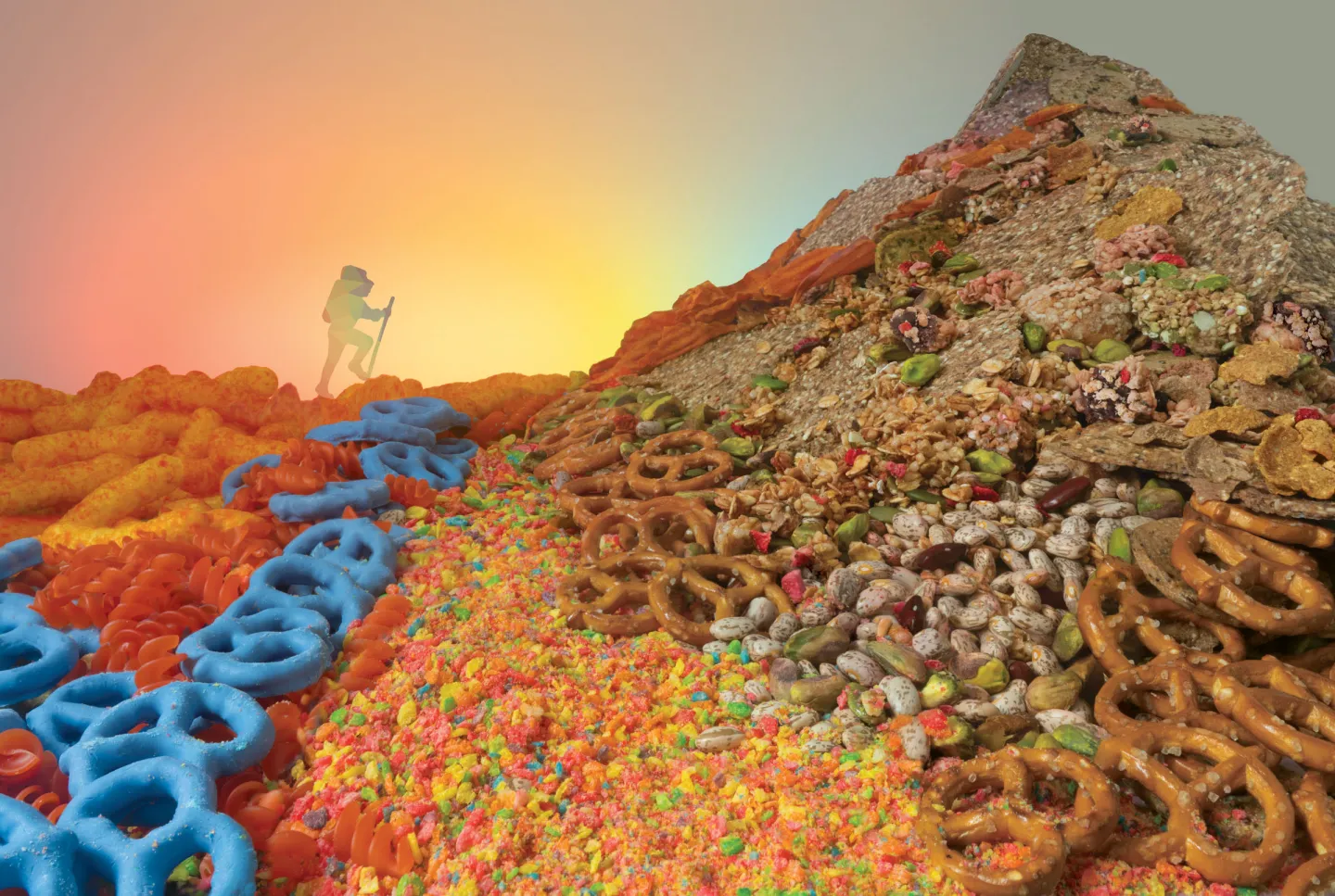Recent research indicates that not all ultra-processed foods are detrimental.
On August 27, 2024, an unexpected twist in the debate over ultra-processed foods has emerged, challenging long-held beliefs about their health impacts. A recent experiment conducted by registered dietitian Jessica Wilson has uncovered surprising benefits of consuming ultra-processed foods, contradicting the dire warnings from other health experts.
The controversy started with Dr. Chris van Tulleken, who in the summer of 2023, conducted an experiment eating primarily ultra-processed foods like chips, soda, and frozen meals. His findings were alarming: weight gain, worsened health markers, and even changes in brain structure. This experiment, outlined in his book Ultra-Processed People, highlighted the negative impacts of such diets and sparked widespread concern.
However, Wilson, a California-based dietitian, took a different approach. She embarked on her own month-long trial, consuming 80% of her daily calories from ultra-processed foods, similar to the average American diet. Her choices included soy chorizo, ready-to-eat tamales, cashew-milk yogurt, and Costco pupusas. Contrary to van Tulleken’s results, Wilson experienced increased energy and decreased anxiety. She reported feeling better overall, attributing her improved state to the consistent, calorie-dense meals she was consuming.
This surprising outcome raises crucial questions about the blanket demonization of ultra-processed foods. If Wilson’s positive experience is genuine, it suggests that the quality of diet, including the presence of essential nutrients and overall calorie intake, may play a more significant role in health than the mere processing level of food.
The debate over processed foods is timely, as the U.S. government plans to update its Dietary Guidelines for Americans in 2025. These guidelines influence public health recommendations and policies, including school nutrition programs and food assistance initiatives. The potential inclusion of ultra-processed foods in these guidelines has stirred reactions from the food industry, which argues that such foods have been unfairly criticized and can be part of a healthy diet.
Wilson’s position is controversial among nutrition experts. The standard view, supported by numerous studies, links ultra-processed foods to various health issues, including obesity, diabetes, and heart disease. Yet, Wilson argues that broad recommendations to avoid all ultra-processed foods could confuse people and exacerbate feelings of guilt about their diets. She emphasizes that a one-size-fits-all approach fails to consider the diverse and essential role these foods can play, especially for those with limited access to fresh, whole foods.
The classification of processed foods is complex. Foods are often judged by their nutritional content—vitamins, minerals, fats, sugars, and salt. The NOVA classification system, which differentiates between unprocessed, minimally processed, processed, and ultra-processed foods, plays a significant role in this debate. According to NOVA, ultra-processed foods contain ingredients that are not typically used in home cooking, such as emulsifiers and artificial flavorings.
Experts like Giulia Menichetti from Harvard Medical School acknowledge the lack of a universally accepted definition of processed foods, which complicates the discussion. For instance, milk undergoes pasteurization, making it processed according to some definitions, but others do not categorize it as such due to its minimal additive content.
Recent research indicates that not all ultra-processed foods are detrimental. A 2023 USDA study found that an ultra-processed diet could still adhere to federal dietary guidelines if it included nutritious options like canned vegetables and whole grain products. This suggests that the health impacts of ultra-processed foods can vary based on their nutritional profile and overall diet quality.
In a 2024 study, researchers found that while heavily processed diets were linked to premature death, the overall quality of the diet—nutrient density rather than processing level—was more crucial. This challenges the view that all ultra-processed foods should be universally avoided.
Critics like van Tulleken acknowledge that not all ultra-processed foods are equally harmful. He advocates for better regulation of foods high in salt, sugar, and saturated fats, rather than a blanket ban. Similarly, NIH researcher Kevin Hall’s study indicates that ultra-processed foods might drive overeating and contribute to weight gain, but the exact mechanisms are still unclear.
Despite the controversies, some ultra-processed foods can offer nutritional value and convenience. For many people, particularly those facing economic constraints, these foods can be a vital part of their diet. Wilson’s experiment underscores the need for a nuanced approach to food processing, considering both the benefits and drawbacks of various food types.
As the debate continues, one thing remains clear: the conversation about ultra-processed foods is far from over. The upcoming updates to dietary guidelines and regulatory measures will likely shape how these foods are perceived and consumed in the future. Until then, individuals like Wilson will continue to challenge prevailing narratives, advocating for a balanced view that accommodates the realities of modern food systems.
#UltraProcessedFoods #NutritionDebate #HealthyEating #FoodExperiment #DietaryGuidelines
